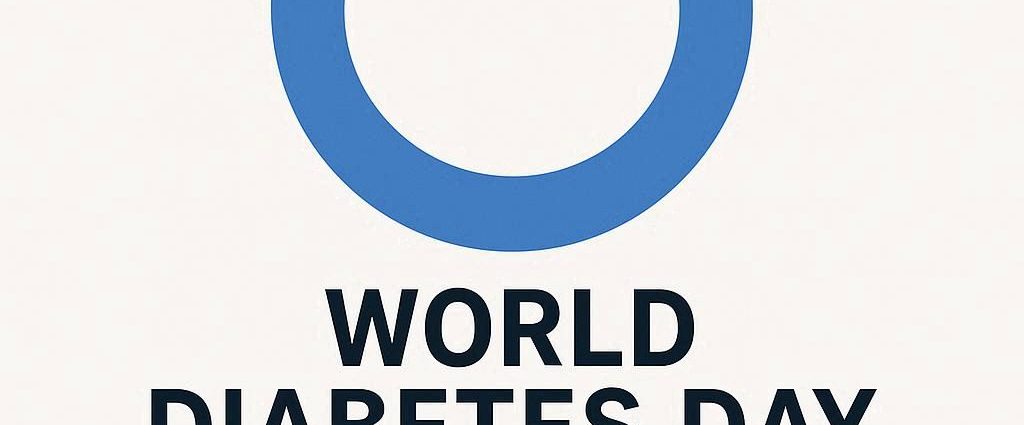Each year on 14 November, the global community observes World Diabetes Day (WDD), an awareness campaign initiated by the International Diabetes Federation (IDF) together with the World Health Organization (WHO) in 1991 to combat the rising burden of diabetes.
For 2025, WDD’s theme is “Diabetes and Well-being”, with a focused sub-campaign calling for action on “Diabetes and the workplace” (World Diabetes Day).
This presents a timely opportunity for organisations like Orapuh, its divisions, and stakeholders in The Gambia and beyond to reflect on how diabetes impacts not only physical health but also mental, emotional, social, and occupational well-being.
Why This Theme Matters
According to the IDF, about 7 in 10 people living with diabetes are of working age, which means workplace policies, supports, and environments are crucial. The IDF also notes that many people living with diabetes experience anxiety, depression, or other mental health conditions related to their diabetes. Some reduce their performance, skip work, or face discrimination, not because of the disease itself, but due to environments that do not support holistic well-being.
For a region like West Africa, where non-communicable diseases (NCDs) are growing alongside existing health burdens, looking beyond glucose counts to overall well-being is especially relevant.
What Is Diabetes?
Diabetes is a chronic condition in which the body either does not produce enough insulin or cannot properly use the insulin it produces. This leads to elevated blood glucose levels and complications if unmanaged, according to the WHO.
Major types include:
-
Type 1 Diabetes: Immune-mediated destruction of insulin-producing cells (often early onset).
-
Type 2 Diabetes: Insulin resistance and/or reduced insulin production (often adult onset but increasingly affecting younger individuals).
-
Gestational Diabetes: Hyperglycaemia first recognised in pregnancy, with implications for both mother and child.
Early detection and management are key to preventing complications such as cardiovascular disease, kidney failure, blindness, nerve damage, and amputations (WHO Southeast Asia).
What Does “Well-being” Include?
Under the 2024–2026 WDD campaign, “well-being” includes three dimensions:
-
Physical Well-being: Beyond controlling blood sugar, this includes preventing and managing complications, maintaining a healthy lifestyle, proper nutrition, and regular exercise (European Society of Endocrinology).
-
Mental and Emotional Well-being: Stress, burnout, anxiety, and depression are higher among people with diabetes, making mental health support essential (Saudi Ministry of Health).
-
Societal and Occupational Well-being: Communities, workplaces, and policies should support people with diabetes, reduce stigma, and promote inclusion (World Diabetes Day).
For the Orapuh community (faculty, staff, students, partners), this means advocating not just for medical care but also for environments and practices that nurture all three dimensions of well-being.
Key Messages for Orapuh and Its Audience
-
Diabetes is not just a health issue; it affects families, workplaces, communities, and national health systems.
-
Early detection and management matter. Know your risk factors, such as age, family history, weight, physical inactivity, and diet, and promote screening.
-
Well-being requires teamwork. Healthcare providers, employers, educators, families, and individuals must work together to create supportive environments.
-
In the workplace and educational settings, policies should:
-
Allow flexible scheduling for appointments or check-ups.
-
Provide healthy food options, promote physical activity, and reduce stress.
-
Educate managers and peers to reduce stigma and discrimination related to diabetes.
-
-
Preventive lifestyle choices such as a balanced diet, regular physical activity, maintaining a healthy weight, limiting sugary drinks, and avoiding tobacco are essential.
-
For West Africa and The Gambia, institutions like OCS can lead by embedding diabetes wellness into curricula, campus life, community outreach, and partnerships.
Why This Matters for The Gambia and West Africa
Diabetes prevalence is increasing in low- and middle-income countries, including sub-Saharan Africa. Though national statistics vary, the global picture underscores the urgency of preventive and supportive actions (World Diabetes Day).
Health systems in many African countries face constraints such as limited access to diagnostics, medicines, and trained personnel (WHO Southeast Asia).
Addressing well-being broadly helps build resilient individuals and systems, reduces complications, and strengthens families and health budgets.
As Orapuh prepares to mark World Diabetes Day 2025, the message is clear: diabetes affects more than blood sugar; it impacts lives, jobs, mental health, and communities.
By embracing the theme “Diabetes and Well-being” and focusing on workplaces, schools, and communities, we can move from awareness to action, from treatment to support for thriving lives.
Let us commit—on 14 November and beyond—to building environments where every person living with or at risk for diabetes has the opportunity not just to survive but to live well.
Together, we can make well-being a reality for all.

